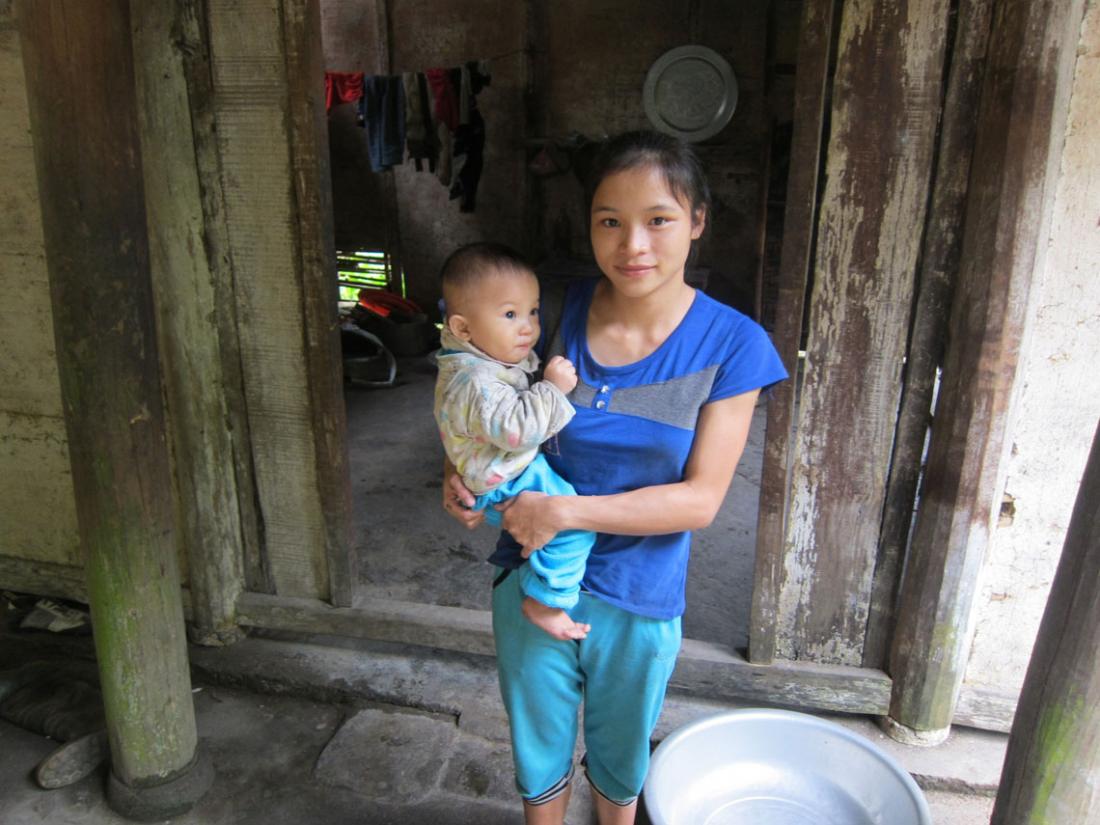In mountainous regions of Vietnam, ethnic minority women lack essential knowledge on reproductive health, pregnancy and natal care due to their isolation and other barriers.
Vietnam has made impressive strides in recent years in improving the health of mothers and children and in reducing deaths linked to pregnancy and childbirth. But in remote regions, maternal mortality rates are almost four times higher among ethnic minority groups. Census data shows that minority groups have larger families, higher infant and child mortality rates, and a lower life expectancy than the Kinh majority. In mountainous regions, ethnic minority women lack essential knowledge on reproductive health, pregnancy and natal care due to their isolation and other barriers.
To address these gaps, a research team led by Vietnam’s Institute of Population, Health and Development (PHAD) is harnessing the power of low cost and widespread mobile phone technology. An electronic maternal health platform, called mMOM, links health system users and providers by using mobile phones to connect with Thái Nguyên province’s health management information system (HMIS). With funding from Canada’s International Development Research Centre (IDRC), the initiative is being tested in eight communes of the province’s Dinh Hoa district in north-east Vietnam, where ethnic minority groups make up more than one-quarter of the population.
The initiative, co-managed by the provincial health department, will ultimately strengthen both staff capacity and the quality of data that decision-makers can use in health system planning. The project is part of a global IDRC-funded initiative called SEARCH that is examining how to integrate e-health technologies into health systems in developing countries to improve delivery of care.
Using the existing provincial HMIS, women of reproductive age were identified in the target areas. So far, the pilot initiative is connecting 340 women, including newlyweds, pregnant women and new mothers. Health staff from provincial and commune levels are being trained and supported in maternal and child health care, as well as the new maternal e-health system. The project has established a Maternal and Child Health Information Centre to provide women with crucial information about pregnancy, prenatal care, birth and infant care.
Participants have been linked by mobile phone to commune health staff. Based on their profile, women receive appropriate and timely text messages. One-way messages provide vital health information prompts, while two-way messages solicit responses to identify high-risk cases. For example, new mothers are reminded that their babies can be immunised for free at their local health centre and pregnant women are prompted to take iron supplements. Responses to periodic queries can alert healthcare workers when urgent interventions are needed.
Minority women are thus gaining knowledge and trust in reproductive health services available to them. At the same time, mMom is building a more accurate picture of the needs and demographics of health system users. Over the next two years, researchers aim to shed light on the factors that limit health system use and undermine the health of mothers and children. Lessons from mMom will inform efforts to scale up maternal e-health efforts across Vietnam and beyond, helping mothers in remote regions access quality care and vital information to raise healthy families.
For further information contact:
Liem Nguyen
Institute of Population, Health and Development, Vietnam
E-mail: [email protected]
International Development Research Centre, Canada
E-mail: [email protected]
*This article also appears in Asia Research News 2015 (p.32).



